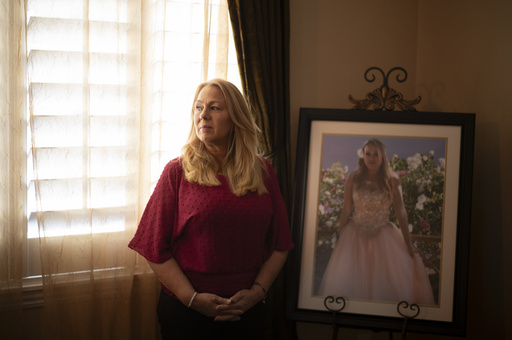In 2019, Brandon McDowell, now 25 years old, inadvertently caused the death of 20-year-old Alexandra Capelouto by selling her counterfeit pills laced with fentanyl instead of Percocet, a prescription painkiller. Sadly, Alexandra passed away in her Temecula, California, home due to the deadly synthetic opioid. Fentanyl overdoses have tragically become a prevalent cause of death among minors in recent years, with over 74,000 individuals in the U.S. succumbing to synthetic opioids in 2023, according to data from the U.S. Centers for Disease Control and Prevention.
McDowell has been serving a prison sentence since 2022 after being convicted of fentanyl possession. However, the Capelouto family, grieving the loss of their daughter, secured an additional $5.8 million judgement against McDowell for Alexandra’s death. Matt Capelouto, Alexandra’s father, expressed that while they have achieved some justice, there is still a long road ahead in holding accountable those responsible for such tragedies.
Baruch Cohen, the Capeloutos’ attorney, highlighted that this ruling marks the first instance to his knowledge where a drug dealer has been held civilly liable for causing someone’s death. He hopes this verdict will serve as a significant message, deterring future drug deals by showcasing the substantial financial repercussions drug dealers might face alongside jail time.
Following his initial guilty plea in 2022 for fentanyl distribution, McDowell faced a nine-year prison sentence. Dissatisfied with the outcome, Matt Capelouto, in conjunction with his wife who was battling cancer, decided to pursue a wrongful death lawsuit against McDowell since a mere prison sentence felt insufficient for taking their daughter’s life.
Despite McDowell filing for bankruptcy, the Capelouto family emerged victorious with a $5 million judgement against him as the court deemed he intentionally sold dangerous narcotics that ultimately led to Alexandra’s demise. Moreover, a subsequent case in federal bankruptcy court secured that McDowell couldn’t escape his debt through bankruptcy.
Judge Mark Houle sided with the Capeloutos, awarding them a $5.8 million judgement against Brandon McDowell, inclusive of interest. Matt Capelouto, deeply impacted by his daughter’s passing, went on to establish the non-profit Stop Drug Homicide to advocate for families and lobby for enhanced legislation to hold drug dealers accountable. Among these efforts is the proposal of Alexandra’s Law, a measure that would mandate notifying individuals with drug-related convictions about the risks of dealing drugs and the potential murder charges they might face if their distribution results in death.
Matt Capelouto further elaborated on the challenges prosecutors face in California when charging drug dealers in death cases, underscoring the importance of having a formal warning for convicted dealers, as proposed in Proposition 36. Additionally, the Capelouto family is among a group of 60 families suing Snapchat due to its role in facilitating the dissemination of dangerous narcotics, as communication between Alexandra Capelouto and Brandon McDowell occurred via the platform.
Justin McDowell, Brandon’s father, voiced his discontent with the situation, portraying his son as a young individual grappling with drug addiction rather than a deliberate drug dealer. Justin expressed his inability to financially contend with the legal battles for his son, who lacked representation during civil and bankruptcy court proceedings while incarcerated.
On the other hand, Matt Capelouto dismissed claims of his daughter having a drug addiction and emphasized that Brandon McDowell’s substance abuse does not absolve him of accountability in Alexandra’s death. Instead, he stressed the crucial shift from a drug user to a drug dealer, signifying the transition from needing assistance to being answerable for one’s actions.
